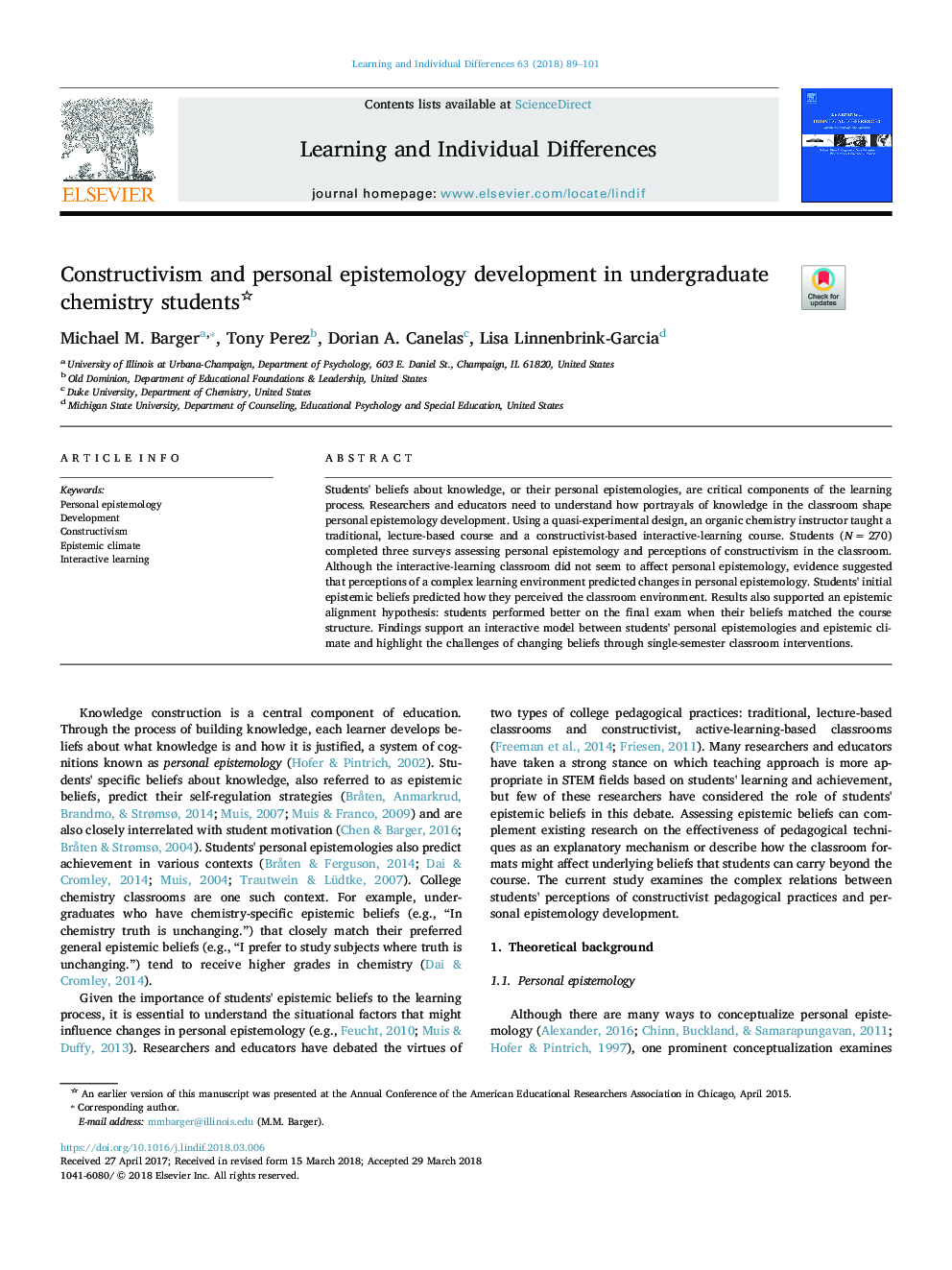| Article ID | Journal | Published Year | Pages | File Type |
|---|---|---|---|---|
| 6844417 | Learning and Individual Differences | 2018 | 13 Pages |
Abstract
Students' beliefs about knowledge, or their personal epistemologies, are critical components of the learning process. Researchers and educators need to understand how portrayals of knowledge in the classroom shape personal epistemology development. Using a quasi-experimental design, an organic chemistry instructor taught a traditional, lecture-based course and a constructivist-based interactive-learning course. Students (Nâ¯=â¯270) completed three surveys assessing personal epistemology and perceptions of constructivism in the classroom. Although the interactive-learning classroom did not seem to affect personal epistemology, evidence suggested that perceptions of a complex learning environment predicted changes in personal epistemology. Students' initial epistemic beliefs predicted how they perceived the classroom environment. Results also supported an epistemic alignment hypothesis: students performed better on the final exam when their beliefs matched the course structure. Findings support an interactive model between students' personal epistemologies and epistemic climate and highlight the challenges of changing beliefs through single-semester classroom interventions.
Related Topics
Social Sciences and Humanities
Psychology
Developmental and Educational Psychology
Authors
Michael M. Barger, Tony Perez, Dorian A. Canelas, Lisa Linnenbrink-Garcia,
